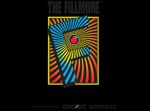The Mainstream: David Bowie’s Legacy of Brilliant Oddity
David Bowie’s Legacy of Brilliant Oddity
Only a few artists have been as influential as David Bowie has been over the decades. The influences might not be directly discernible in each and every case, but they are there. Bowie was a talent that took risks, went in a myriad of different directions and displayed a wildly brilliant oddity throughout his career, but at the core remained not only a rock and roll legend, but a rock and roll fan to the end.
The post-holiday blues can not compare with the announcement that David Bowie, age 69, had just lost his 18-month long battle with cancer. Oddly enough, my earliest memory of David Bowie is a holiday tune. I remember catching a replay of Bing Crosby’s Merrie Olde Christmas back in the late 1970s and its now legendary Crosby and Bowie duet on Little Drummer Boy/Peace on Earth. Who was this strange character with the intriguing voice? “Oh, he’s some rock ‘n roll singer who’s kinda odd, but has a great voice,” retorted one of my parents to my out loud musings. After the show though, I pretty much forgot about David Bowie and his “oddity,” and went on to grow up with a love for my parent’s old Beatles, Stones, U2 (who I considered my Beatles and Stones), and later on Pearl Jam, Soundgarden, et. al. which to me became the ONLY music that mattered.

When Bowie came to mind, or when I managed to hear something from him, I quickly wrote him off as that “odd” character who was around in the ‘70s or something. In my eyes, Trent Reznor was what Bowie only wished he could have been and U2 were geniuses of reinvention with a purpose, so it was “Bowie who?” as far as I was concerned. I remembered that Christmas performance though… and as I began to realize that yes, “there was meaningful music recorded before 1989” (thanks Jeremy Piven and Jon Favreau) and after Kurt and Nirvana recorded a version of Bowie’s “The Man Who Sold The World,” I thought maybe it would be worth taking a closer look at this David Bowie oddball.
A few years after Kurt’s cover, Bowie released a song titled “The Heart’s Filthy Lesson.” I didn’t notice it until it played over the credits to David Fincher’s Se7en, which remains, to this day, one of my favorite movies by one of my favorite directors. At first I thought it was Reznor, but it was Bowie. Was he trying to keep himself current and relevant, I wondered? NIN was just off their biggest album and success with the recently released Downward Spiral. If this was the case though, then why didn’t Bowie release some down-tuned guitar rock a few years ago? I filed this thought away for later. “The Heart’s Filthy Lesson” was quite a good song… and it would really help the sales of Bowie’s definitive mid-90s album Outside (1995).
A few years later, the Reznor/Bowie musical relationship was consummated with “I’m Afraid of Americans,” the lead single off of Earthling (1997). Okay, it was time to get to really get to the bottom of this Bowie thing. Was he worth a real listen? Was he floating his career along by riding the coattails of the current popular and critically acclaimed rockers?
There’s no need for me to rehash Bowie’s brilliant career here. Suffice it to say that Bowie was gender-bending before Marilyn Manson and Davy Havok tried it. He was making atmospherically divergent and spiritually and morally murky albums in Berlin with Brian Eno before Bono and the boys even thought about changing their sound and look, and was experimenting with grungy guitars and electronically grungy sounds before Chris Cornell drop-D-tuned his axe and Reznor started making music in a Cleveland-based New Wave band.
Bowie was much more prescient in his musical taste and outlook on the world than he is given credit for. Just watch the video for “I’m Afraid of Americans” from the mid 90s and see how relevant it was, and how much more relevant it is now, considering the ever expanding cycle of gun violence in America.
Bowie’s forays into pop brought a different kind of success, but at the heart of the music was a deep-seated love for rock ‘n roll. His duet with Mick Jagger on their cover of Martha and The Vandellas “Dancin’ In The Streets” is more a tribute to the original Motown sound than it is a cash grab for the two, both of which were on the verge of having their then current relevance re-assessed by the music consuming public as well as critics.
During his most pop phase, that of the 1980s, he managed to give one of the best rock performances of his career during the original and now legendary first Live Aid (1985) concert which saw The Police more or less retire and U2 take over as the biggest band in the world. Bowie was the proper, smartly dressed, older brother to U2 and The Police who showed them how a proper, and mature, rock star retains their relevance and as well as their heart.
The Author’s David Bowie Playlist:
1. Space Oddity
2. The Width of a Circle
3. All The Madmen
4. She Shook Me
5. The Man Who Sold The World
6. Diamond Dogs
7. Rebel Rebel
8. We Are The Dead
9. Moonage Daydream
10. Star Man
11. Hang On To Yourself
12. Ziggy Stardust
13. Suffragette City
14. Heroes
15. Speed of Life
16. Always Crashing in the Same Car
17. The Hearts Filthy Lesson
18. I’m Afraid of Americans
19. The Pretty Things Are Going to Hell
20. Blackstar
21. Lazarus





























